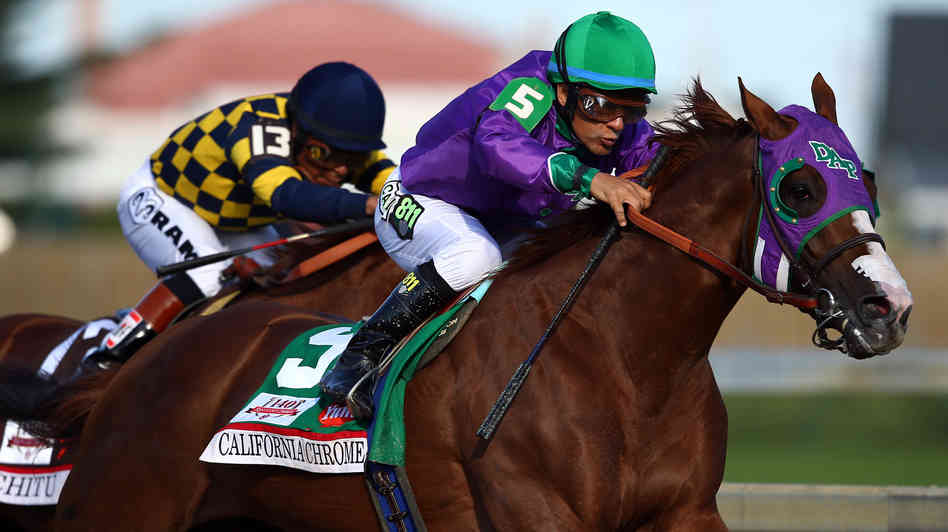LOUISVILLE, Ky. — There are few rules in racing, but one that is considered inviolable is never to turn down a suitcase full of cash. Steve Coburn and Perry Martin understood that, but two months ago, when one of the sport’s far wealthier owners offered them $6 million for 51 percent of the first horse they had bred, the offer just did not sit well.
They certainly could have used the money: Coburn works for a company in Nevada that makes the magnetic tape for credit cards and hotel keys; Martin owns a California laboratory that tests air bags and landing gear. They work five days a week and do not skip work for rounds of golf or for cocktails at the yacht club.
They scraped together $10,000 to breed California Chrome, and it was not pocket change to them. Retirement savings were tapped. Mortgages were leveraged.
Now here was a potentially life-changing windfall. It would mean moving their beloved Chrome out of the barn of Art Sherman, the horse’s 77-year-old trainer. It would mean fading into the background.
But what hurt worse was that the offer had come from someone who, as the cowboy-hat-wearing Coburn put it, “never put on a pair of boots” to go to work and thought he could buy someone else’s hard work. It did not take them long to decide: The answer was an emphatic no.
So when Victor Espinoza edged California Chrome into the starting gate for the 140th running of the Kentucky Derby on Saturday, not only had Coburn and Martin put their money where their mouths were, they were also doubling down on something that had no price.
“We knew within our souls what kind of horse we had,” Coburn said.
There should have been little doubt that they had a good one. California Chrome had run away with his last four stakes races by more than 24 lengths combined. In doing so, he had displayed an extra gear in the final eighth of a mile of a race.
But skeptics remained, especially in the bluegrass of Kentucky.
No California-bred horse had won the Derby since Decidedly in 1962. There was no way these West Coast cowboys were stealing out of Kentucky with the local breeders’ hardware and birthright. When Sherman and California Chrome hit Churchill Downs last week, the whispers started: The colt looked stiff in the mornings. The old man had pushed him too hard.
There was no way an $8,000 mare (Love the Chase) and a $2,500 heretofore undistinguished stallion (Lucky Pulpit) could have produced a horse swift and gritty enough to hold off a blue-blooded herd for the entire length of the track’s foreboding stretch.
The majority of bettors, however, apparently disagreed: California Chrome burst out of the gate with the bulk of their money as the 5-to-2 favorite.
The colt’s rider, Espinoza, thought the price should have been even shorter. He had won the Derby in 2002 aboard War Emblem, and only a stumbled start in the Belmont Stakes prevented them from sweeping the Triple Crown races.
He knew Chrome was better.
In the winners’ circle, none of them were thinking about that suitcase full of money. They had just taken home a $1.2 million check for first place, plumping their bargain-basement colt’s bankroll to well over $2 million, for an easy mile-and-a-quarter romp in 2 minutes 3.66 seconds.
Forget the money. Coburn promised that he and his horse were after history. They were on to Maryland and the Preakness.
“He’ll fly first class,” Coburn said of Chrome, “and me and the wife will fly coach again.”
Then, Coburn promised, they were headed to New York to claim the Triple Crown at the Belmont.
“Do you nonbelievers believe this horse now?” Coburn said.
The answer should be clear.



